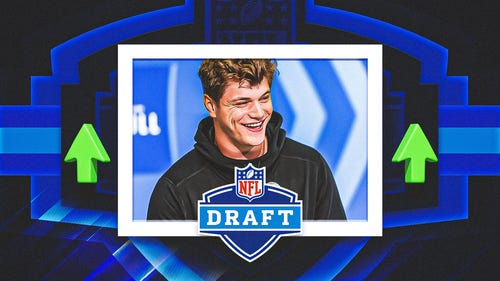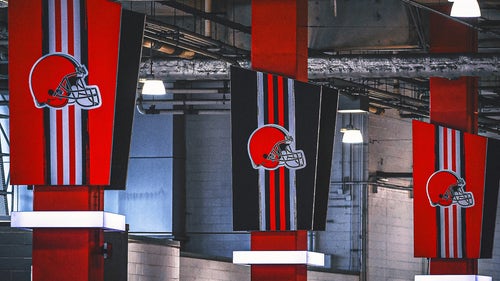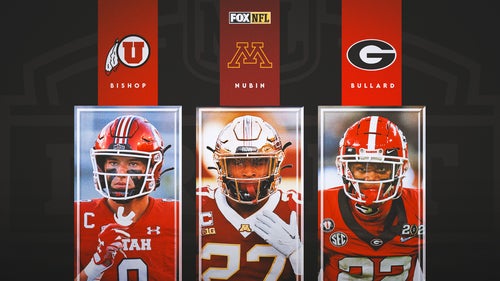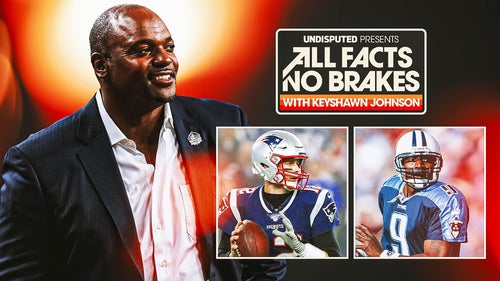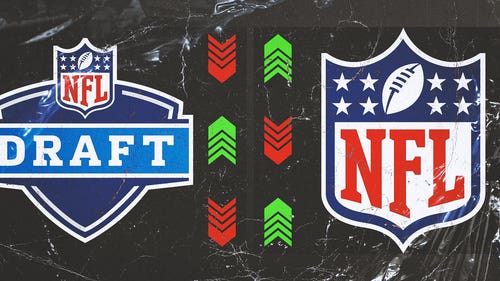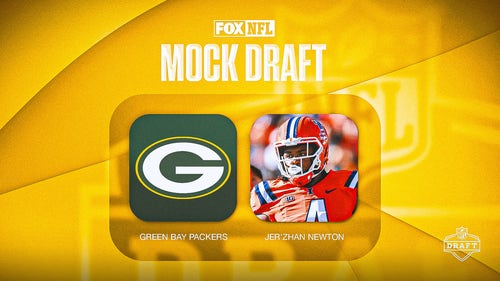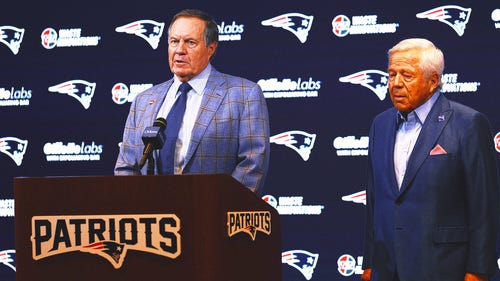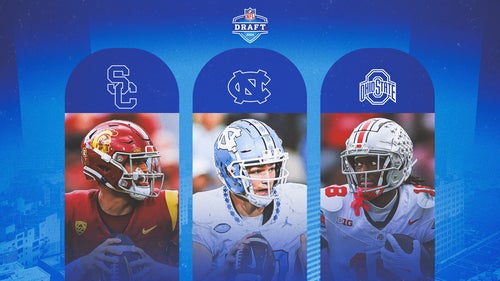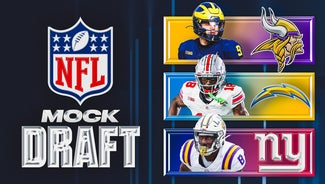
HGH testing: Q&A with NFLPA's Smith
Over the past few months, as the negotiations on HGH testing between the NFL and NFL Players Association have progressed, NFLPA executive director DeMaurice Smith has not publicly addressed the issue.
Until Thursday, when Smith spoke exclusively with FOX Sports.
In an extensive Q&A, Smith said the reported idea of testing former players was not proposed by the union, while also providing details on how the players' blood will be handled during the upcoming population study. Smith also confirmed reports — including one from FOX Sports — that stated NFL commissioner Roger Goodell is looking to maintain control of appeals for violations that do not include a positive test. And Smith maintained that "recent history has validated" that insisting on a population study was "the right course" of action to take:
Q: There have been some accusatory statements made that the NFLPA has been holding up the process of HGH testing with a population study and other matters. NFL officials have said as much and as recently as Thursday's USA Today, there have been such suggestions in the media as well. What's your view of that?
A: I don't really have a view. I know what's factually accurate, and it's good news for the players of the National Football League, it's good news for the league. Players and league have agreed to a protocol to begin HGH testing. There will be a population study that will include the testing of all players in order to determine the correct decision limit for determining violations of the performance-enhancing policy. The two sides have agreed that should commence in training camp. The sides have agreed on protocols for random testing throughout the year that will be in place and then tested against the decision limit that's been reached. And the sides have agreed on a completely neutral researcher and biostatisticians who will be in charge of conducting the population study. The good news is after a rather torturous process, the league agreed to the population study that we have been insisting was scientifically necessary. We are all prepared for that HGH process and testing to begin.
Q: So they've returned your letter in which you agreed to the population-study protocol?
A: It's just awaiting Roger's signature, but I went through every aspect of that letter and my understanding is there are no disagreements of how to conduct this study and what happens during the course of the analysis.
Q: How quickly can the study happen and how quickly can the HGH testing protocol to which you've agreed begin?
A: Well, the doctor (Alan Rogol) who is running the study, we've all envisioned blood draws would begin during preseason and the analysis of those blood draws would continue through the season with the hope of reaching the scientific conclusion about the decision limit near the end of the season. But also the two sides have agreed to a protocol for random testing throughout the year. That will then be measured against the decision limit.
Q: So as far as enforcing penalties on violators, you're looking at the end of this season?
A: The important thing for me and the players has been the decision-limit-testing protocol is purely in the hands of a neutral scientist. His job has been to determine the scientifically valid protocol and testing limit. As soon as that decision limit is reached, the test from the population study and random testing results will be measured against that scientifically valid decision limit.
Q: There was a report Wednesday that stated 100 former players would receive HGH as part of a test group to see what it would do to the HGH levels in their body. What do you know about that?
A: I go back to the fact this entire HGH-decision-limit protocol is being conducted by a neutral researcher that was picked by both the players and the league. Unlike the reports that erroneously and irresponsibly said it was an NFLPA plan to do X, Y and Z, that's just simply not true. The study is being conducted by a neutral physician chosen by both (sides). If the researcher makes a determination that he wants to utilize the services of former players, that's up to the researcher. But that's not an NFLPA plan, that's not an NFL plan. The only plan that's going to be done is the one chosen by the neutral researcher.
Q: So you're saying that's all part of the population study?
A: I don't know what his plan is. I don't even know if he has, or they have, decided on exactly what use to make of the blood work from former players. All I'm saying is we've picked a neutral researcher to conduct a scientifically valid study and that's the person who will make the decisions about how to conduct the study.
Q: To be clear, testing former players is not your idea?
A: This is not an NFLPA study. This is not an NFL study. The drug policy is a collectively bargained, joint program and the course that we've both decided on was using the expertise of a neutral researcher.
Q: What concerns have you heard from the players since you told them you've agreed to a population study?
A: First, to be dead honest with you, not overwhelming concerns. The concerns we heard from the players were that they want a clean game, they want to know the people they're lining up against, and with, are drug-free and they wanted to have a protocol where they knew scientifically what standard they were being measured against in order to determine whether a player has unlawfully taken HGH. Other than the concerns they want a clean game and scientifically valid, our players are fine with blood tests, they want to make sure they're conducted by licensed phlebotomists and they wanted to make sure that when those blood tests occurred, they didn't occur in a way that jeopardized their health.
Q: With the population study guidelines, there's a note that if more than five percent of the players test higher than what's determined to be the normal level of HGH, those players are subject to "reasonable cause" testing through the end of the 2014-15 season. Did you want this study to be just a study and not have such implications down the line?
A: We wanted to have a scientifically valid determination of the correct decision limit. We also want to make it clear our players want to have a clean game. And so coming up with a system that could punish players for violating the performance-enhancing rules, but at the same time coming up with a scientifically valid protocol, those were the two overriding concerns.
Q: OK, but the first email sent to the players said it would be a population study and the blood wouldn't be used for any other purpose.
A: Right, and that's true, but the point about it not being used for any other purpose is players wanted to make sure the blood draws being done by everybody in preseason ... that blood wasn't going to be used for any other genetic testing, that the league wouldn't use that blood to make any other non-HGH related research. That's what that email meant.
Q: What's going to happen with the blood when it's taken and are you worried about issues of confidentiality?
A: Great question, and the privacy concerns of our players was one of the big concerns. The blood from the population study drawn of every player in camp will be utilized to determine the decision limit. As soon as that decision limit is reached, there are strict protocols calling for the destruction of the blood samples and both parties have the ability to conduct audits and verify that the blood has been destroyed. And then, with respect to the random testing, that blood is going to be held until it is measured against the decision limit. If that player is determined to be in violation of the decision limit, that player has the right to his due process. That due process includes that a player may request a 'B' sample be (tested). Obviously, that blood has to be kept so a player has his full due-process rights. All of that occurs in front of a neutral arbitrator.
Q: So what's holding up the whole thing? Why do we not yet have HGH testing in the NFL?
A: The only thing holding up the full drug program is the commissioner wants to carve out neutral arbitration for all aspects of the drug program for certain violations of law or evidentiary violations. The overwhelming vote of our player representatives on every team is that players should have the right of neutral arbitration for every aspect of the drug program, not just the parts that Roger Goodell wants to keep for himself.
Q: All in all, we're now more than two years removed from the decision to work toward an agreement on HGH testing. Did you think it was going to last this long? Do you wish it had come sooner? Do you hope it's not going to keep dragging out?
A: This is collective bargaining and the drug program is a joint, collectively bargained program. The players' incentive, as well as the league's incentive, is to come up with the best testing protocol. It's certainly taken some time to make sure we do it the right way so it's fair for both parties. The reality of collective bargaining is sometimes it takes longer to get it right. I'm proud of the way in which the league has embraced the population study and the scientific rigor that needs to be employed to get this right. Think about this: This is the first time that a league, any league, has undertaken such a scientifically rigorous course to validate drug testing. That is something that, while it took a long time, both of us should be proud.
Q: You said the population study was necessary. They publicly said it was a stall tactic. In the end, they agreed to it.
A: I think that recent history has validated that was the right course. When commentators and WADA said this was a stall tactic, all of this was before an Olympic athlete tested positive, according to WADA, for HGH. And at the end of that appeal, the international court of appeal came to the conclusion that the way in which WADA reached the decision limit was unsupportable and overturned that player's ban from the sport. That case just happened to occur after we took our stand on the necessity of the population study and after both WADA and others said the population study wasn't needed. We now know scientifically what should have occurred. But at the end of the day, I'm pleased for our game that this has taken place.






































































































































